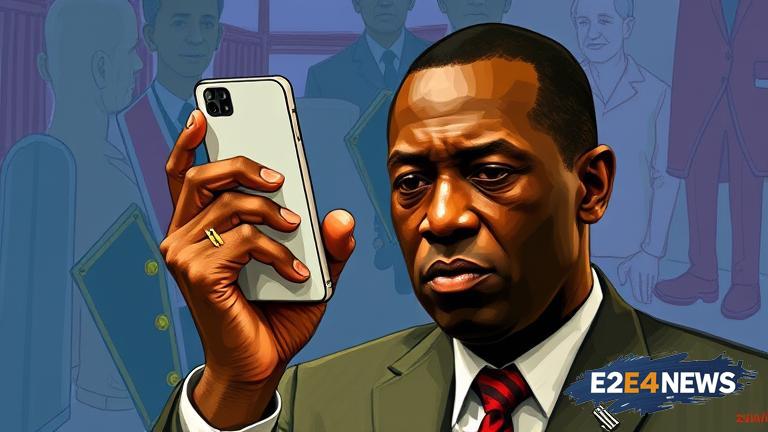The high-profile corruption trial of former South African official Nzuza has taken a dramatic turn as the defendant’s legal team has challenged the admissibility of cell phone evidence presented by the prosecution. The trial, which has been ongoing for several months, has seen numerous twists and turns, with the latest development being the defense’s assertion that the cell phone evidence is inadmissible due to alleged irregularities in its collection and handling. The prosecution had presented the cell phone evidence as a key piece of evidence in their case against Nzuza, who is accused of corruption and fraud. However, the defense team has argued that the evidence was obtained through questionable means and is therefore unreliable. The court is expected to rule on the admissibility of the evidence in the coming days. The trial has been closely watched by the South African public, with many seeing it as a test of the country’s ability to hold high-ranking officials accountable for corruption. Nzuza’s case is just one of several high-profile corruption trials currently underway in South Africa, as the country seeks to root out corruption and restore public trust in government. The case has also highlighted the importance of digital forensics in modern law enforcement, as cell phone evidence is increasingly being used to build cases against suspects. However, the defense’s challenge to the evidence has raised questions about the reliability of such evidence and the need for strict protocols to be followed in its collection and handling. The prosecution has argued that the cell phone evidence is a crucial part of their case, and that its exclusion would significantly weaken their position. The defense, on the other hand, has argued that the evidence is tainted and should not be allowed to be presented to the court. The judge is expected to carefully consider the arguments presented by both sides before making a ruling. The outcome of the trial is being closely watched by the South African public, with many seeing it as a test of the country’s commitment to fighting corruption. The case has also sparked debate about the use of cell phone evidence in criminal trials, with some arguing that it is a powerful tool for law enforcement, while others see it as a potential threat to individual privacy. As the trial continues, it is likely that the issue of cell phone evidence will remain a central theme. The court’s ruling on the admissibility of the evidence will be closely watched, and is likely to have significant implications for the outcome of the trial. The case has also highlighted the importance of transparency and accountability in government, as well as the need for robust systems to be put in place to prevent corruption. The South African government has been working to implement a range of measures aimed at reducing corruption, including the establishment of a new anti-corruption agency. However, the case against Nzuza has shown that there is still much work to be done to root out corruption and ensure that those responsible are held accountable. The trial is expected to continue for several more weeks, with the prosecution and defense presenting their final arguments before the court. The outcome of the trial is far from certain, and it is likely that the case will be appealed regardless of the verdict. The use of cell phone evidence in the trial has raised important questions about the balance between public safety and individual privacy, and the need for clear guidelines to be established for the collection and handling of such evidence. The case against Nzuza has also highlighted the importance of international cooperation in the fight against corruption, as well as the need for countries to work together to share best practices and develop effective strategies for preventing and investigating corruption. The South African government has been working to strengthen its relationships with other countries in the region, with a view to improving cooperation on issues such as corruption and organized crime. The case has also sparked debate about the role of the media in reporting on corruption trials, with some arguing that the media has a critical role to play in holding those in power accountable, while others see the media as a potential obstacle to justice. As the trial continues, it is likely that the issue of cell phone evidence will remain a central theme, and that the case will continue to be closely watched by the South African public and international community.
